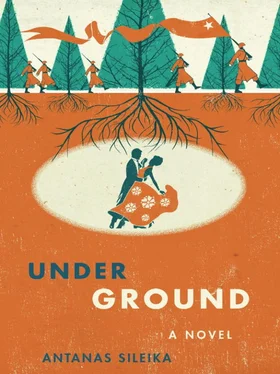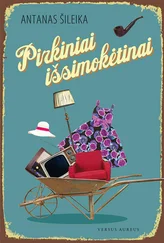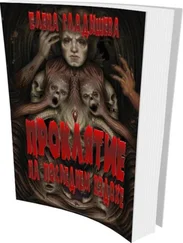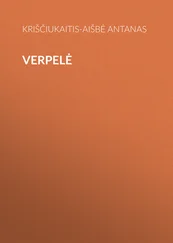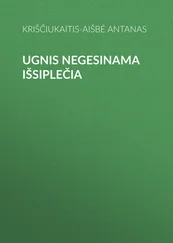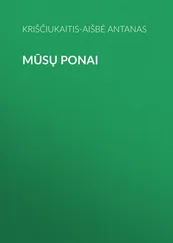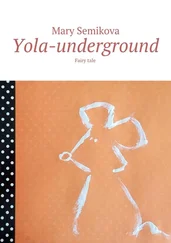“No.”
“Sure? You’ll be buried alive for weeks at a time.”
“But you’re free here,” said Lukas.
“Yes, that’s right. We’re free here.”
“We want to be free too.”
“There’s a price for it.”
“My brother and I are willing to pay.”
This seemed to satisfy Flint. He nodded and relit his pipe. “Either of you speak English? No? Then learn it. We need someone to listen to the BBC and type up the news. You’ll both work in writing newspapers along with other duties. Get something to eat, and then we’ll do your oath.”
Lukas and Vincentas walked over to one of the long log tables where the men were gathering to eat. They were served by a woman in a greatcoat. She ladled the barley soup into wooden bowls. She wore a Russian hat with flaps over her ears, but curly brown hair spilled out over her forehead and at the side of her face.
“Eat, men, eat. There’s plenty where this came from. I’ll be back to serve you seconds when you’re done.”
“What kind of meat is in this soup?” a partisan asked.
“Beef, of course.”
“Again?”
“I’m sorry. I’ll just run back to the kitchen and bring you pancakes and sour cream.”
“I miss pork.”
“Well, the Reds aren’t driving the pigs out of Germany, my friend, they’re driving cows. Think of yourself as an American cowboy.”
“I’ll eat the beef if you promise it’s been cooked with love.”
“You’ll eat the beef or go hungry. And if you make any more smart remarks I’ll knock your nose with my ladle.”
Vincentas and Lukas sat themselves at the table and the woman served them as well. She smiled at them, but they were too shy to speak. For all her rough banter, Lukas saw that her hands were soft and the fingernails slightly long. This was no country cook.
Other men settled around them.
“Hello,” said the man who sat beside Lukas. He was compact, with a strand of hair that stuck out from under his stocking cap, and cheeks bright red from the combination of cold and steam from the soup. From a pocket inside his greatcoat he took out a hand-carved wooden spoon as big as a ladle.
“That’s quite the spoon,” said Lukas.
“Beauty, isn’t it? I carved it myself. And practical! It’s saved me from starvation more than once.”
“How did it do that?”
“Whenever we’re short of rations, I ask for just one spoonful of soup or porridge, and then bring this thing out. It’s the size of a bowl, see? My friend here, Ungurys, and I have both eaten from it more than once, tipping it from side to side. Of course, he has no trouble getting served now because his sister is visiting and she always gives him the best pieces of gristle.”
The man he pointed to was thin and dark, with bushy eyebrows and a moustache and a quiet manner. He barely looked up when his friend said his name.
“Don’t mind Ungurys. He has a good heart, but he doesn’t know how to show it. He’s the kind of man you can rely on in a pinch.”
“He has an odd name,” said Lukas. Ungurys meant Eel in Lithuanian.
“It’s a code name. We all have them and try to use them so we won’t know what our friends’ real names are, in case we’re ever taken alive. It doesn’t really work over any length of time, but we do it anyway. You’ll have to choose code names too. Mine is Lakstingala.” It meant Nightingale in Lithuanian.
“That’s an unusual name,” said Lukas. “Why did you choose that?”
“The other partisans call themselves Falcon, or Vampire, or Tiger, trying to sound frightening or manly. It’s embarrassing. Even Flint is only one of a dozen names of stones the others chose. Me, I just want to survive, so I’ve chosen a feminine name that will make the Cheka think I’m a woman, and a bird’s name to help me fly away if I need to.”
“It’s an unlucky name,” said Ungurys. “I warned you.” He put his face back down into his soup.
“He thinks all bird names are bad because birds sing.”
“Meaning what?” asked Lukas.
“That I’ll confess if I’m ever taken alive. He thinks if he calls himself Eel he’ll always be able to slip away. You’ll each need to choose names before the oath. Have you thought about them?”
“I’ll take Salna ,” said Vincentas. It meant Frost in Lithuanian.
“And I’ll take Dumas .” The word meant Smoke, but Lukas pronounced it without the final s .
“Both unlucky,” snapped Ungurys. “Both impermanent.”
“Not mine,” said Lukas. “Mine is a joke. It refers to the French writer Alexandre Dumas, who wrote The Three Musketeers .”
Vincentas laughed, but Lakstingala looked at them oddly and then turned to Ungurys for an explanation.
“I don’t know what they’re talking about either,” said Ungurys. “They’re intellectuals. They can’t help it. I just hope they don’t blow our heads off when they’re learning to shoot.”
“I actually shoot pretty well,” said Lukas.
“Maybe,” said Ungurys, “when you’re aiming at a bird or rabbit. But those two don’t shoot back. We’ll see what kind of shot you are under pressure.”
Lukas jutted his chin toward the woman who had been serving soup. “Are there many women among you?”
“Some,” said Lakstingala. “They’re mostly cooks and nurses, but others carry machine guns and fight if they’re fierce enough. Flint doesn’t like to have them around much except as couriers. They’re more useful to us in the city. The cook is Ungurys’s sister. She comes down from Marijampole from time to time to visit her brother.”
“Isn’t that dangerous?” asked Lukas.
“I’m all she has left, except for our other sister,” said Ungurys.
“What happened to your parents?”
“They had a nice house we grew up in, but a Red Army shell killed my mother and destroyed the house. The Reds had already sent my father up to join the polar bears.”
“So what’s she doing here?”
“I had to go into the woods to avoid the draft.”
“And he’s her little brother,” said Lakstingala. “She comes down to make sure he’s had enough to eat and brings him a clean handkerchief to blow his nose.”
“What about Lozorius? I was hoping to see him around.”
“Lozorius,” said Ungurys, permitting a shadow of a smile to flit across his sour face. “Good man.”
Lakstingala nodded. “He’s the only one without a code name. He’s off somewhere, trying to unite all the partisan bands. It’s a tough job, and dangerous. There are thousands of us across this country. He’s bringing us under a combined leadership.”
“Now, he’s the kind of man you can trust,” said Ungurys. “He’s been to Poland and then came back. You tell me who else would return here if he had a chance to escape. He woke up in a bunker once to find a Chekist bent over him, and strangled the man with his bare hands. If we had another thousand like him, the Reds would flee this country with their arses stinging.”
“This must be some other man. The Lozorius I knew was a student with me in Kaunas. He was depressed for a while.”
“Wide-set eyes, ears sticking out a bit?” asked Lakstingala.
“That’s him.”
“You knew him in the city, where he was just another student. We know him in the forest, where he’s a different man altogether. Listen, he broke twenty men out of prison. One of them is here somewhere.” Lakstingala looked about and then stood and walked over to another table, where he went to a man with his back to them and clapped him on the shoulder. They talked for a moment, and then the man took up his bowl and brought it over.
The man was bundled up like no one else, wrapped in two coats and with a scarf both over his head and around his neck, the part beneath his chin wet with bits of barley on it. He scooped a couple more spoons of soup into his mouth before looking up. He was familiar, but Lukas could not place him.
Читать дальше
